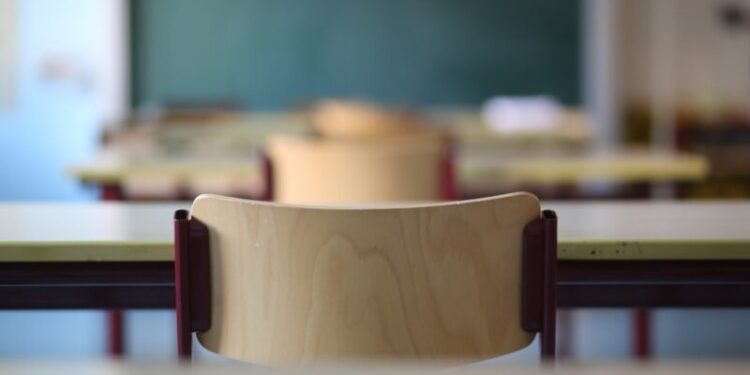@TeacherToolkit
In 2010, Ross Morrison McGill founded @TeacherToolkit from a simple Twitter account through which he rapidly became the ‘most followed teacher on social media in the UK’. In 2015, he was nominated as one of the ‘500 Most Influential People in Britain’ by The Sunday…
Read more about @TeacherToolkit
What are the advantages and disadvantages of centralised, whole-school detentions?
Turn to education Twitter, and you’ll find polarised discussions, with one or two branching off into disputes, blocking or pile-ons. Such is the nature of the platform, I wanted to offer some nuance to the discussion on centralised detentions.
Centralised detentions are nothing new
Firstly, centralising sanctions is nothing new in our schools. I was doing this as a middle leader in 1999.
I guess the critical question is, are they needed and are they the right thing to do?
In my middle and senior leadership experience (spanning 17 years), four of the 5 large secondary schools I worked for (in London) organised centralised detentions. In the second school, there were daily detentions set by classroom teachers. Repeated offenders were referred to the Friday after-school detention led by senior and middle leaders that I supported. This was a small start-up school – think Michaela before social media – with detentions organised in one classroom before moving to a larger space as the school evolved.
In the third school in Wembley, West London, the same process happened, where centralised detentions happened on a Friday evening in a not-so-conducive environment easily disrupted by staff and students. There were no centralised detentions in the fourth school in Tottenham, North London. The executive leadership team (of which I was not a part), often dealt with the most serious offenders. Teachers and departments organised their detentions, and in my most recent senior role, year teams organised centralised detentions before gradually moving to a Friday night event.
Put simply, behaviour management was hard work in all of these secondary schools and the leadership had to support the staff.
What about centralised detentions outside of secondary education?
What about primary schools? Early years centres? Pupil referral units? Virtual schools? Suddenly, a one-size approach to managing behaviour requires a degree of interpretation.
Do primary schools organise centralised detentions? I suspect the larger ones with 500+ pupils do! Smaller primaries, whether in the city or a rural context, possibly don’t.
The brilliant team at TeacherTapp polled teachers on whole-school detentions. Whilst, not a representation of everybody working across the sector, it’s as good as we currently have, providing insights into teachers’ working lives.
Primary teachers are stricter!
Only last week, key stage 1 and 2 teachers reported that they were stricter across the profession. Who’d of thought that our primary colleagues would have a stricter approach in the classroom than our secondary colleagues?
What needs unpicking – which the data doesn’t show – is the experience of these teachers, the children with whom they work, their social, emotional and mental health, and the school socioeconomic context in which they work. I know TeacherTapp has this data and that we only view the headlines.
The next question is, why did primary teachers need to be stricter? Is it because those teachers work with younger children who have developing cognitive abilities and who may not be able to process what is right or wrong?
Who hosts school detentions?
In a survey conducted last month, TeacherTapp asked, ‘Who hosts detentions?’
Remarkably, 7 per cent of teachers said that the school does not allow detentions! This needs clarification.
- 36 per cent said they must oversee some of the detention they set
- 8% said their team/department hosted them
- 26% suggested they were centralised, occasionally having to contribute
- 22% indicated that there are centralised detentions in which they do not have to take part in.
Each of these responses requires further analysis, so I’ve offered some questions below:
- Is there a whole school process for the teachers who oversee their detentions also in place for escalated events?
- When things do not go well in the classroom, are there centralised detentions for the above situation in primary and secondary schools?
- Are teachers who support detentions in their team given sufficient training in managing the process?
- What role does the teacher play when supporting centralised detentions?
- What reasons would determine why a teacher should not take part in the centralised process?
Is centralised detentions the right thing to do?
Returning to the critical question: ‘Are centralising detentions needed in our schools, and are they the right thing to do?’
Well, the obvious response is to consider the context of the school. A large school population of 2,000 pupils versus a one-form entry primary school will soon work out how best to deal with escalating behaviour issues en-masse.
The next critical question is, with increasing mental health issues and exclusions, year-on-year, should we be pushing students into whole school scenarios where they can be publicly identified for misdemeanours?
Assuming (as a baseline) that all teachers and schools conduct themselves in a humane manner, I am confident that on the vast majority of occasions, all pupils are dealt with, with courtesy and respect. I also know all teachers work with very challenging pupils, and in some rare instances, verbal and physical abuse can happen.
Centralising systems is vital for the productivity of the school and for maximising effort and impact. However, this should not come at the cost of reducing teacher autonomy and empowering teachers to (better) manage their classrooms. This starts with effective in-house professional development.
One key argument for centralised detentions is that it reduces teacher workload, but there is also a danger that it takes away the responsibility of the teacher to control the behaviour of students in their class.
If workload is the key argument for managed systems, why doesn’t every school do it?




















